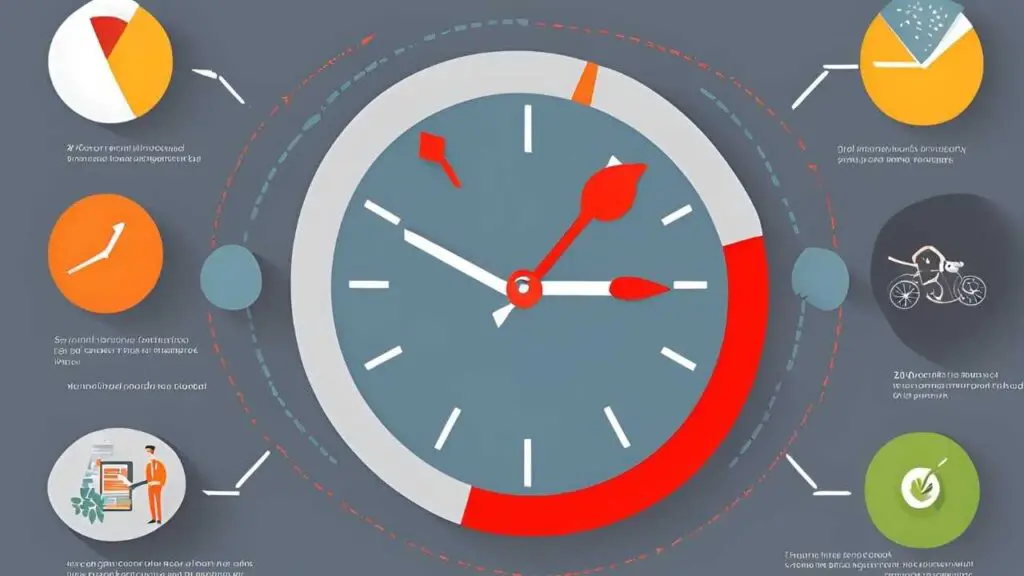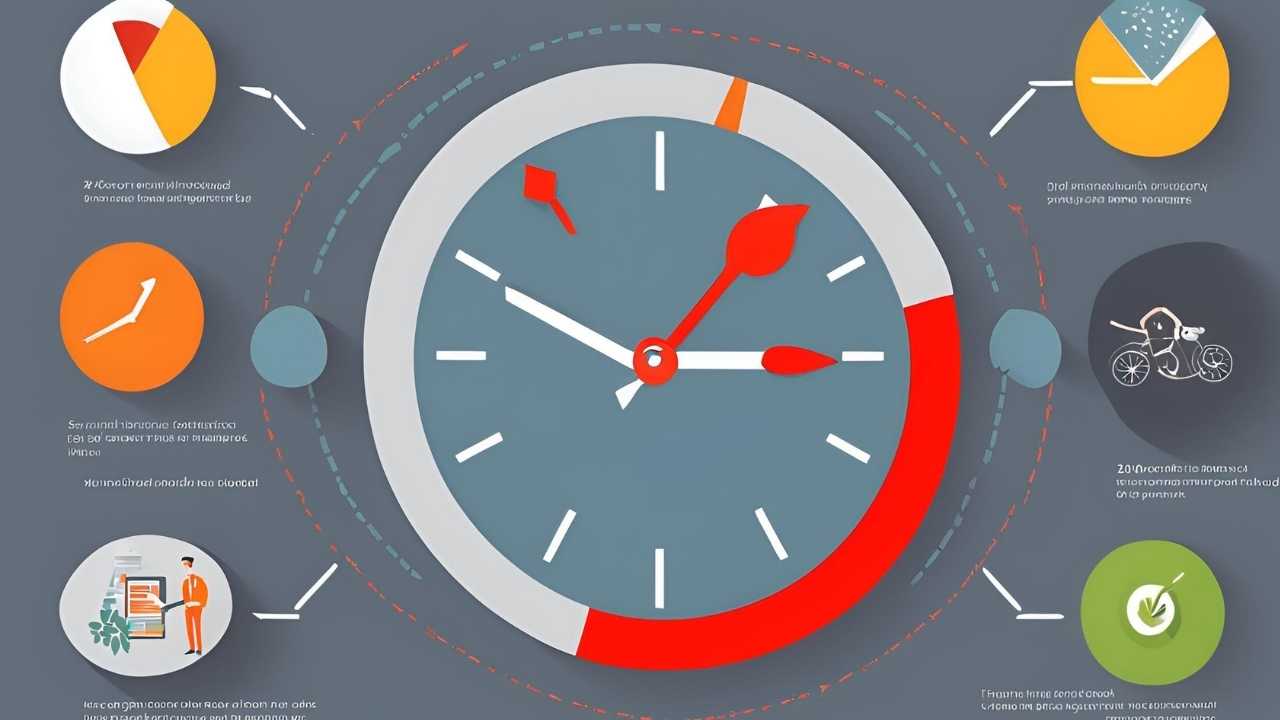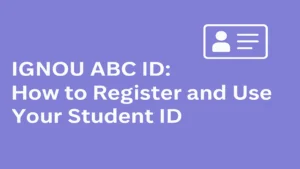Introduction: The Importance of Effective IGNOU Exam Preparation 📝
The Indira Gandhi National Open University (IGNOU) offers a flexible and accessible education system, attracting students from various backgrounds. However, one of the biggest challenges faced by IGNOU students is preparing for exams while managing their personal, professional, and academic commitments. Effective exam preparation is crucial for success in the term-end exams and plays a significant role in your academic journey.
A well-structured approach to preparing for the IGNOU exams can significantly improve your performance, reduce stress, and enhance your understanding of the subjects. This guide aims to provide you with proven study strategies, tips, and resources to help you prepare effectively and achieve your desired results. 📚
Understanding the IGNOU Exam System 📊
Before diving into exam preparation, it’s essential to understand the IGNOU exam system to align your study strategies accordingly.
Exam Patterns for Different Types of Courses
IGNOU exams typically consist of theory exams, practical exams, and assignments. While the assignments contribute to the overall grade, the term-end exams are more significant. The exam pattern varies by program:
- Undergraduate and Postgraduate Courses: These usually include multiple-choice questions (MCQs), short answer questions, and long answer questions.
- Diploma and Certificate Programs: These exams may involve practical assessments or project-based submissions.
The Structure of Multiple Choice Questions (MCQs), Descriptive Questions, and Project-Based Exams
Understanding the types of questions in the exams will help you tailor your study plan. For MCQs, practice is key to recognizing patterns and improving speed. For descriptive questions, focus on developing clear, concise, and well-organized answers. For practical exams, hands-on experience and a deep understanding of your subject will be essential.
Weightage of Assignments, Term-End Exams, and Practicals in Final Grading
In most cases, the term-end exams have a higher weightage than assignments. However, completing your assignments on time can give you a strong foundation for understanding the subjects and can also improve your overall grades. Always check the weightage distribution of each component for your specific course to plan your study time effectively.
Create a Study Plan: Structuring Your Time for Maximum Efficiency 📅
A study plan is the backbone of your exam preparation. Without one, it’s easy to become overwhelmed by the sheer volume of material to cover.
Importance of Creating a Study Schedule in Advance
Planning your study schedule well in advance will give you the structure and discipline needed to prepare effectively. Start by noting the exam dates, and create a timeline for each subject. Allocating specific time slots for each subject ensures that you don’t end up neglecting any course.
Breaking Down the Syllabus into Manageable Chunks
The IGNOU syllabus is vast, and trying to study everything at once can be counterproductive. Break down the syllabus into manageable sections. For example:
- Week 1: Unit 1 and Unit 2 of Subject A
- Week 2: Unit 3 and Unit 4 of Subject A
- Week 3: Unit 5 and Unit 6 of Subject A
- Week 4: Revision of Subject A and move on to Subject B.
This way, you’re not trying to cover everything in one go, and you give each topic its due time.
How to Balance Studying for Multiple Subjects and Meeting Deadlines
It’s crucial to balance your study time between subjects. If you’re juggling multiple subjects, allocate more time to subjects that you’re less familiar with or those that you find more challenging. Ensure that you balance revision, practice (for MCQs and assignments), and theory-based study in equal measure.
Sample Study Timetable: How to Allocate Time Based on Exam Dates
- Morning (9:00 AM – 12:00 PM): Focus on Subject A (theory).
- Afternoon (1:00 PM – 3:00 PM): Work on assignments and practice questions for Subject A.
- Evening (4:00 PM – 7:00 PM): Study Subject B (theory) or engage in group study discussions.
Know Your Syllabus: The Foundation of Effective Study 📚

The first step to effective exam preparation is understanding your syllabus thoroughly. The IGNOU syllabus serves as a roadmap for what you need to study and helps you prioritize topics.
Importance of Thoroughly Understanding the IGNOU Syllabus
The syllabus is more than just a list of chapters—it outlines the core objectives, learning outcomes, and key topics. It’s essential to align your study plan with the syllabus so that you don’t miss any critical areas.
How to Use the Syllabus to Guide Your Preparation
Once you have the syllabus, break it down into individual topics and assign study hours for each. Start with the core topics, as they often form the basis for your exam questions. Avoid spending too much time on topics that are less likely to appear.
Identifying Core Areas of Focus and Key Topics for Each Subject
Certain topics in the syllabus will have more weight in the exams. Core concepts, case studies, or theoretical frameworks are often repeated. Focus on these areas while still ensuring that all topics are covered.
Using the Syllabus to Prioritize Study Material Effectively
Prioritize study material based on the syllabus. For example, if the syllabus indicates a topic is heavily weighted in exams, give that topic more attention. The goal is to ensure deep understanding in high-priority areas while covering other sections for breadth.
Collecting Study Materials: IGNOU’s Official Resources and Beyond 📖
The next step is to gather your study materials. IGNOU provides ample resources, but sometimes, you may need to supplement your learning with additional materials.
Using IGNOU Study Material Effectively
IGNOU provides printed study material and online resources that are specifically designed for your course. The e-Gyankosh platform offers ebooks, assignments, and previous question papers. These resources are the most reliable and should be your primary source of study.
Accessing e-Gyankosh and IGNOU Online Study Resources
The e-Gyankosh portal allows you to access a wide range of learning resources, including lectures, videos, and study material. Make sure to use it to your advantage by downloading resources before you start your study sessions.
How to Use Reference Books, Online Libraries, and Additional Resources
While IGNOU’s material is comprehensive, sometimes reference books or online libraries can provide deeper insights into a subject. Books from reputable authors, online journals, and academic websites can be used to further explore difficult topics.
Best Practices for Organizing Study Material for Easy Access
Organize your study material using folders, both physical and digital, for quick access. Label each folder clearly (e.g., Subject A: Unit 1, Subject B: Practice Papers) to avoid wasting time searching for resources during study sessions.
Time Management Strategies for Effective IGNOU Exam Preparation ⏳

Effective time management is crucial for success in the IGNOU exams. Without a proper strategy, you may find yourself overwhelmed by the amount of content you need to cover.
Creating a Realistic Study Schedule: Long-Term and Short-Term Goals
Set realistic goals that are both short-term and long-term. For instance, your long-term goal might be to complete the syllabus in 6 weeks, while short-term goals could include completing specific units or chapters every day.
Breaking Down Study Time into Focus Blocks and Revision Sessions
Use techniques like the Pomodoro method (25 minutes of study, followed by a 5-minute break) to improve focus. Also, schedule revision sessions regularly, especially after completing each unit, to reinforce learning.
Balancing Work, Family, and Other Commitments While Preparing for Exams
If you’re working or have other family commitments, consider the following:
- Early morning or late-night study sessions: Utilize quiet hours to focus on studying.
- Weekend study blocks: Dedicate weekends for longer study sessions.
- Use breaks effectively: Use small breaks during work hours for quick revision or reading.
Tools and Apps for Effective Time Management
There are several apps that can help you manage your time more effectively, including:
- Google Calendar for scheduling study sessions.
- Trello for creating a detailed study plan and tracking progress.
- Forest for blocking distractions during study time and staying focused.
How to Tackle Multiple Subjects and Manage Study Load 📚
Many IGNOU students study for multiple subjects simultaneously. Managing this workload efficiently is essential to avoid stress and last-minute cramming.
Tips for Studying Multiple Subjects Simultaneously
Focus on one subject at a time but switch between subjects based on difficulty and importance. You can study two subjects a day by alternating between theory-heavy courses and those requiring practice or application.
Strategies for Avoiding Overwhelm and Staying Focused on Each Subject
- Break each subject into subsections.
- Use study blocks where you study a subject for an hour, followed by a break, before switching to the next.
How to Switch Between Subjects Without Losing Productivity
The key is to create a smooth transition:
- Review your notes from the previous session.
- Write a brief summary of the subject before switching.
Identifying Subjects That Need More Focus and Managing Weak Areas
Identify which subjects are more challenging and require additional time. Spend extra hours on these subjects during your study sessions to catch up with areas of difficulty.
Active Reading and Note-Taking for IGNOU Exam Success 📖
Active reading and effective note-taking are essential skills for mastering your IGNOU exam preparation. These techniques ensure that you not only understand the material but also retain the knowledge for exams.
The Benefits of Active Reading: Skimming, Scanning, and Deep Reading
Active reading involves engaging with the material rather than just passively reading through it. Here are three key techniques:
- Skimming: Quickly read through the chapter or section to get an overview of the content.
- Scanning: Look for specific information, key concepts, or terms related to exam questions.
- Deep reading: Take your time with important sections to understand and analyze them thoroughly.
This approach helps you absorb the most relevant information while saving time during revision.
How to Take Effective Notes While Studying from Textbooks and Study Materials
Taking notes is an art. Here’s how to do it efficiently:
- Highlight key concepts: Underline or highlight important points as you read.
- Summarize in your own words: Rewriting the content in your own words helps with retention.
- Use bullet points for clarity: Break down complex ideas into smaller, digestible parts.
Use a notebook or digital tool (e.g., OneNote or Evernote) to keep everything organized.
The Role of Summarization in Understanding Complex Concepts
After reading a section, write a summary in 3-5 lines that captures the key ideas. This helps consolidate your understanding and provides a quick reference for later revision.
Using Mind Maps and Diagrams for Better Retention
Mind maps are visual representations of concepts and ideas that help improve memory retention. Draw connections between related ideas and organize information in a way that makes sense to you. Diagrams and flowcharts are especially useful for understanding processes or sequences, making them ideal for subjects like economics, management, and science.
Solving Previous Year Question Papers and Model Papers 📑
One of the most effective ways to prepare for IGNOU exams is by solving previous year question papers and model papers. This practice helps you familiarize yourself with the exam format and question types.
The Value of Solving Previous Year’s Question Papers in Exam Preparation
Going through previous year papers helps you understand:
- The format of the questions (MCQs, long answers, case studies).
- The recurrent topics that frequently appear in exams.
- The exam time management required to complete all questions on time.
Make a habit of solving at least one previous year paper each week. It will help you gauge your preparation level and improve your exam-taking skills.
Identifying Frequently Asked Questions and Recurring Topics
As you solve multiple papers, note the recurring questions and topics. This gives you an idea of which areas to focus on during your revision phase.
How Solving Model Papers Helps with Time Management During Exams
Model papers are often designed to replicate the real exam conditions. Solving these under time constraints will train you to manage your time effectively during the actual exam. Set a timer and practice answering questions within the allotted time limit.
Where to Find and How to Use IGNOU Sample Papers and Practice Tests
IGNOU provides sample papers and practice tests on their official website and through study centers. These resources are invaluable in understanding the depth and style of questions that might appear on the exam. Treat each practice test like a mock exam to simulate real exam conditions.
How to Prepare for MCQs and Theory-Based Exams 📝
Whether it’s MCQs or theory-based exams, each requires a different approach to preparation.
Specific Preparation Strategies for MCQ-Based Exams
MCQs test your conceptual understanding and ability to recall information quickly. Here’s how to prepare:
- Practice with MCQs: Use previous papers or online resources that focus on MCQs.
- Understand concepts: Rather than memorizing answers, ensure you understand the underlying concepts so you can eliminate incorrect options.
- Use the process of elimination: If you’re unsure about an answer, eliminate the obviously incorrect choices to improve your chances of selecting the right one.
Tips for Answering True/False, Multiple-Choice, and Match-the-Following Questions
For questions like true/false, always read both statements carefully before making a judgment. For match-the-following questions, first identify the easiest matches and then use them to narrow down the remaining options.
How to Approach Long-Answer and Short-Answer Theory-Based Questions
Theory-based questions often require a detailed response, but time constraints during exams mean you need to be precise.
- Start with the introduction: Introduce the key idea or topic briefly.
- Present arguments logically: Break down your answer into well-structured paragraphs, each dealing with one aspect of the question.
- Conclude succinctly: Sum up your answer with a brief conclusion that ties everything together.
Writing Effective and Concise Answers to Maximize Marks
Even in long-answer questions, avoid over-explaining. Stick to the essentials, focus on answering the question directly, and make sure each point you mention is relevant and well-explained.
Preparing for Practical and Project-Based Exams 🧑🔬
Some IGNOU courses require practical exams or the submission of projects as part of the assessment. These exams and assignments require hands-on preparation.
What to Expect in Practical Exams and How to Prepare
In practical exams, you might be asked to demonstrate your skills or knowledge through experiments or case studies. Preparation involves:
- Hands-on practice: Familiarize yourself with the tools, techniques, or software relevant to your subject.
- Understand the procedures: Make sure you know the step-by-step process for each practical.
- Practice under exam conditions: Try solving practical problems within the given time frame to simulate real exam scenarios.
Step-by-Step Guide to Successfully Completing Project-Based Assessments
Projects typically require deep research, analysis, and a structured report. Here’s how to approach it:
- Choose a topic that interests you and aligns with the syllabus.
- Gather resources: Collect relevant data, research papers, and case studies.
- Outline your project: Divide the report into sections such as introduction, methodology, results, and conclusions.
- Follow formatting guidelines: Ensure that the report adheres to IGNOU’s submission requirements.
Common Challenges in Practical Exams and How to Overcome Them
Challenges include time management, equipment issues, and lack of preparation. To overcome these:
- Practice regularly to improve speed and accuracy.
- Stay calm if something goes wrong during the exam and focus on demonstrating your knowledge.
How to Prepare Your Project Report and Avoid Common Mistakes
Ensure that your project report is well-organized and free from plagiarism. Cite all sources correctly and proofread the document to avoid errors.
Revision Strategies: How to Maximize Retention 🧠
Effective revision is essential for ensuring that the material you’ve studied sticks. A well-planned revision strategy can significantly improve your exam performance.
The Importance of Early Revision and How to Effectively Revise
Start revising early, ideally two weeks before the exam. Early revision helps you identify areas that need more attention. Focus on the key concepts, theories, and examples that are most likely to appear in the exam.
Active Recall and Spaced Repetition Techniques for Better Memory Retention
- Active recall involves testing yourself on the material rather than passively reviewing it.
- Spaced repetition is the technique of revisiting material at increasing intervals. Tools like Anki can help you implement this technique.
Using Flashcards and Revision Notes for Quick Review
Flashcards are great for memorizing key terms and definitions. Write a question on one side and the answer on the other. Review them regularly to reinforce your memory.
The Role of Group Study Sessions for Active Learning and Discussion
Group study sessions can be helpful for discussing difficult topics and sharing insights. However, make sure the session stays focused and doesn’t turn into socializing time.
Preparing for the Day Before the Exam: Last-Minute Tips ⏳
The day before the exam is crucial for final preparation and setting yourself up for success.
How to Structure Your Revision on the Day Before the Exam
- Morning: Revise key concepts and important topics.
- Afternoon: Solve a model paper or review past year questions.
- Evening: Light review, focus on revision notes, and prepare for the next day.
Tips for Stress Management and Staying Calm Before the Exam
- Practice deep breathing exercises or meditation to calm your nerves.
- Avoid overloading with new information. Focus on reinforcing what you already know.
What to Avoid Doing the Day Before the Exam
- Don’t cram new material, as it can cause confusion.
- Avoid staying up late; ensure you get a good night’s sleep for mental clarity.
Preparing Your Exam Kit: ID, Stationery, Water, Etc.
Prepare everything you need for the exam: admit card, photo ID, pens, pencils, water bottle, etc. Make sure your materials are ready the night before.
How to Stay Motivated and Avoid Procrastination 💪
Staying motivated throughout your exam preparation can be challenging, especially when balancing study, work, and personal commitments. The key to success lies in maintaining focus and consistency.
Identifying the Causes of Procrastination and How to Overcome Them
Procrastination often stems from:
- Fear of failure: The anxiety about not doing well can cause delays in starting.
- Overwhelm: Seeing the entire syllabus can feel daunting.
- Distractions: Social media or other obligations can easily derail study sessions.
To overcome procrastination, break your study goals into smaller, achievable tasks. Set deadlines for each task and avoid multitasking. Turn off distractions like your phone or social media while studying.
Setting Realistic Goals and Rewards to Stay Motivated
Start by setting daily and weekly goals that are specific and measurable. For example, set a goal to complete one chapter per day or finish a set of practice questions. Once you accomplish these goals, reward yourself—whether it’s a small break, a snack, or a few minutes of relaxation. These rewards will keep you motivated.
Techniques to Boost Study Confidence During the Preparation Phase
- Positive affirmations: Remind yourself that you’re capable of succeeding. Positive thinking can boost your confidence.
- Visualize success: Picture yourself walking out of the exam with a sense of accomplishment.
- Track your progress: Use a journal or study app to track what you’ve completed. Seeing your progress will help you stay motivated.
Managing Study Burnout: How to Take Breaks and Recharge
If you feel overwhelmed, take a break! Study burnout is a real issue. Ensure you’re:
- Taking short breaks (5-10 minutes every hour) to recharge.
- Scheduling full days off to rest and regain energy.
- Engaging in activities like walking, exercising, or spending time with friends to refresh your mind.
Post-Exam Review: Learning from the Experience 🧐
After the exam, it’s essential to reflect on your preparation process and performance. This will help you improve for future exams and build on what you’ve learned.
The Importance of Self-Assessment After the Exam
Once the exam is over, spend some time reflecting on how you prepared and how well you executed your exam strategy. Ask yourself:
- Did I follow my study plan effectively?
- Were there areas I struggled with during the exam that I need to focus on next time?
- Did I manage time efficiently during the exam?
This self-reflection is a powerful way to improve your study habits for future exams.
How to Analyze Your Exam Performance for Continuous Improvement
- Review: Once your results are available, compare your performance with the areas where you felt less confident. This will help you identify weak spots in your preparation.
- Feedback: If possible, ask your tutor or peers for feedback on where you could improve in answering questions more effectively.
Tips for Handling Post-Exam Anxiety and Staying Focused for Future Exams
Post-exam anxiety is normal, but don’t let it overwhelm you. Instead of worrying about the outcome, focus on the next step:
- Keep a positive mindset and remember that exams are just one part of your educational journey.
- Stay focused on your future exams and coursework, using your reflection from the previous exam to improve your study strategies.
Using Feedback from Your IGNOU Exams to Improve Your Study Approach
Feedback from your exams is invaluable. If you didn’t perform as well as expected, assess your weak areas. For example:
- Did you miss out on certain chapters?
- Were your answers too vague or unclear?
- Did you mismanage your time?
Use this feedback to modify your study plan for the next round of exams, ensuring that you don’t make the same mistakes.
Conclusion: Preparing for Success in Your IGNOU Exams 🎯
Effective IGNOU exam preparation is a combination of strategy, dedication, and smart techniques. By following a structured approach, from understanding the syllabus to refining your exam-taking strategies, you can confidently approach your exams and perform at your best.
Key Takeaways:
- Start early and create a study schedule.
- Understand the exam format and tailor your preparation accordingly.
- Prioritize active study techniques like note-taking, practice papers, and time management.
- Stay motivated and focused, and don’t hesitate to take breaks when needed.
By applying these strategies and remaining disciplined, you will not only perform well in your IGNOU exams but will also build the foundation for continued academic success. 🌟
FAQs
How can I effectively manage time while preparing for multiple IGNOU exams?
Managing time across multiple IGNOU exams can be challenging, but with the right strategy, it’s possible to stay organized and focused. Here are some tips:
Create a study timetable: Allocate specific time blocks for each subject based on the exam schedule and your familiarity with the topics.
Prioritize: Focus on subjects that need more attention or those that are more challenging.
Use time management techniques like the Pomodoro technique to stay focused.
Alternate subjects during the day to avoid burnout and keep your mind fresh.
Don’t forget to schedule revision sessions and make time for practice papers.
How can I prepare for IGNOU MCQ exams effectively?
Preparing for MCQ-based exams requires a different approach than essay-based exams. Here’s how to prepare effectively:
Practice regularly: Solve as many MCQs from previous years as possible. This will help you understand the question format and boost your confidence.
Understand concepts: Focus on conceptual clarity, as MCQs often test your ability to recognize patterns and apply knowledge.
Use elimination techniques: If you’re unsure of the answer, eliminate obviously incorrect options and then focus on the remaining choices.
Review: After completing each practice test, go over your mistakes and make sure you understand why the correct answer is right.
What should I do the day before my IGNOU exam?
The day before your exam is crucial for reinforcing your knowledge and ensuring you stay calm. Here’s what to do:
Revise key concepts and focus on important topics. Avoid trying to learn anything new.
Solve a model paper or a few sample questions to review your time management and the application of concepts.
Stay relaxed and don’t cram. Get plenty of sleep the night before the exam.
Ensure all your exam materials (ID card, admit card, stationery) are ready the night before to avoid last-minute stress.
How can I avoid burnout while preparing for my IGNOU exams?
Burnout can negatively impact your performance and overall well-being. To avoid it, follow these strategies:
Take regular breaks: Use the Pomodoro technique (study for 25 minutes, then take a 5-minute break) to avoid mental fatigue.
Exercise and relax: Physical activity like walking or yoga can help you recharge and manage stress.
Sleep well: Ensure you get enough rest to maintain mental clarity and focus.
Balance: Don’t overburden yourself. Make time for leisure activities, family, and friends to recharge your energy.
How can I improve my performance in practical exams and projects for IGNOU?
Practical exams and projects require hands-on preparation and attention to detail. Here’s how to excel in these assessments:
Understand the requirements: Familiarize yourself with the project guidelines and practical exam format. Know exactly what’s expected from you.
Practice regularly: For practical exams, hands-on practice is key. Make sure you’ve rehearsed the tasks and procedures before the exam day.
Prepare your project: Start early and follow a structured approach—introduction, methodology, results, and conclusion. Double-check that your references and citations are correct.
Stay organized: Keep all project documents, data, and materials well-organized. It will help you present your work efficiently and with confidence.
Related Posts:
- Completing IGNOU Assignments Effectively: Best Tips, Strategies, and Resources 2025
- New Job Placement for IGNOU Students in SBI 2025: Best Opportunity
- Online Registration for IGNOU B.Ed Entrance Exam 2025 Last Date: Comprehensive Guide
- How to Download Your IGNOU Certificates in 2025: A Comprehensive Guide
- IGNOU MA Admission 2025: A Comprehensive Guide For Students




